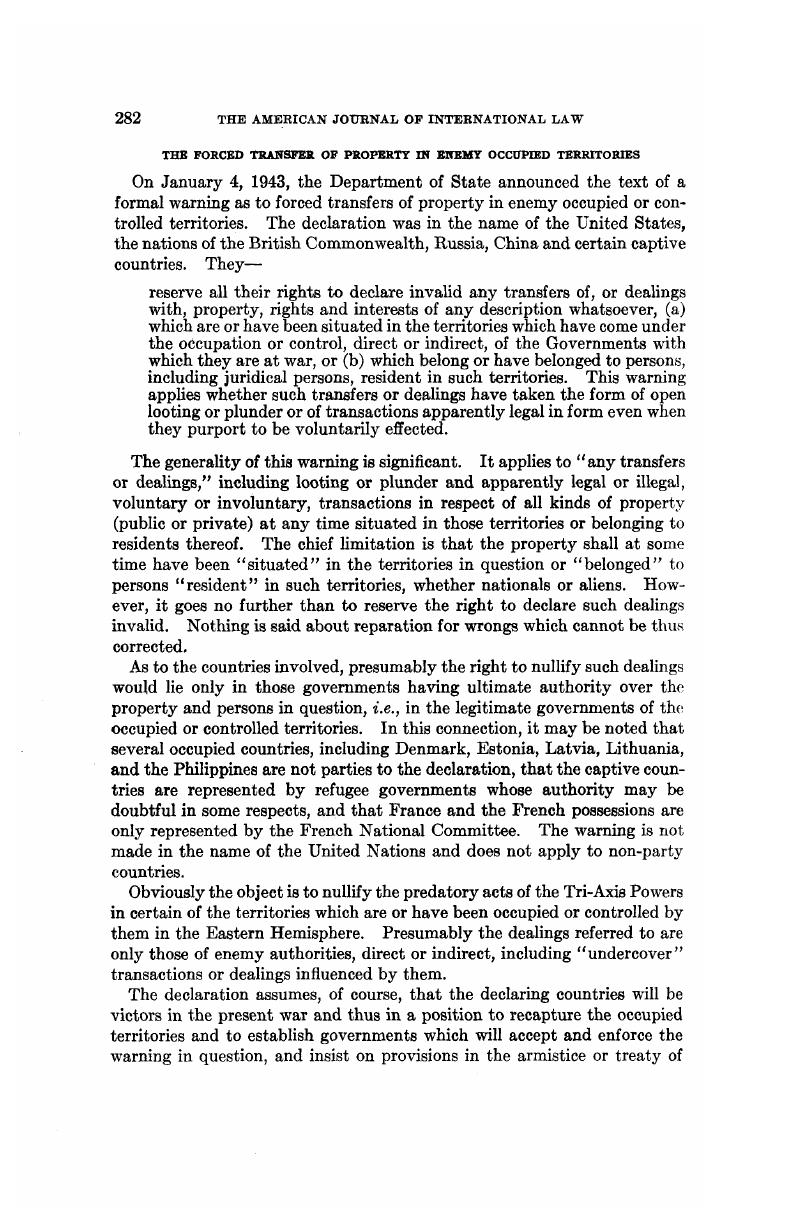Published online by Cambridge University Press: 12 April 2017

1 Some of the governments in exile have issued decrees declaring acts of the occupying authorities or acts done under their compulsion, direct or indirect, null and void: for example, Polish decree of 1939; Belgian and Yugoslavian decrees of 1941. The Polish decree expressly refers to Hague Convention No. IV of 1907 on the Laws and Customs of War on Land.
2 New York Times, June 8, Sept. 15, Nov. 5, 7, 18, 1942. For the practice in the last war, see J. W. Garner, International Law and the World War; E. H. Feilchenfeld, The International Economic Law of Belligerent Occupation. The German Land War Book of the last war declared that “the conqueror is in particular not justified in recouping himself for the cost of the war by inroads upon the property of private persons, even though the war was forced upon him.” (Cited by Hyde, , Land Warfare, 1918, p. 15 Google Scholar.) These acts have been countered to some extent abroad by “freezing” orders and sequestration of enemy property.
3 J. M. Spaight, War Rights on Land; C. C. Hyde, op. cit.; J. W. Garner, op. cit.; E. H. Feilchenfeld, op. cit. Karl Strupp cites a statement of the Reparation Commission that damages inflicted upon nationals of the Allied Powers, as a result of requisitions effected by German authorities, are included in the total amount of the reparations debt when these reparations took place in occupied territory but not when effected in German territory. (This Journal, Vol. 17 (1923), p. 671.)
4 There is no definite limitation on the amount of requisitions or contributions. Art. 52 merely provides that requisitions (not contributions) “shall be in proportion to the resources of the country.” This is a very unsatisfactory rule and does not prevent virtual ruination of an occupied territory.